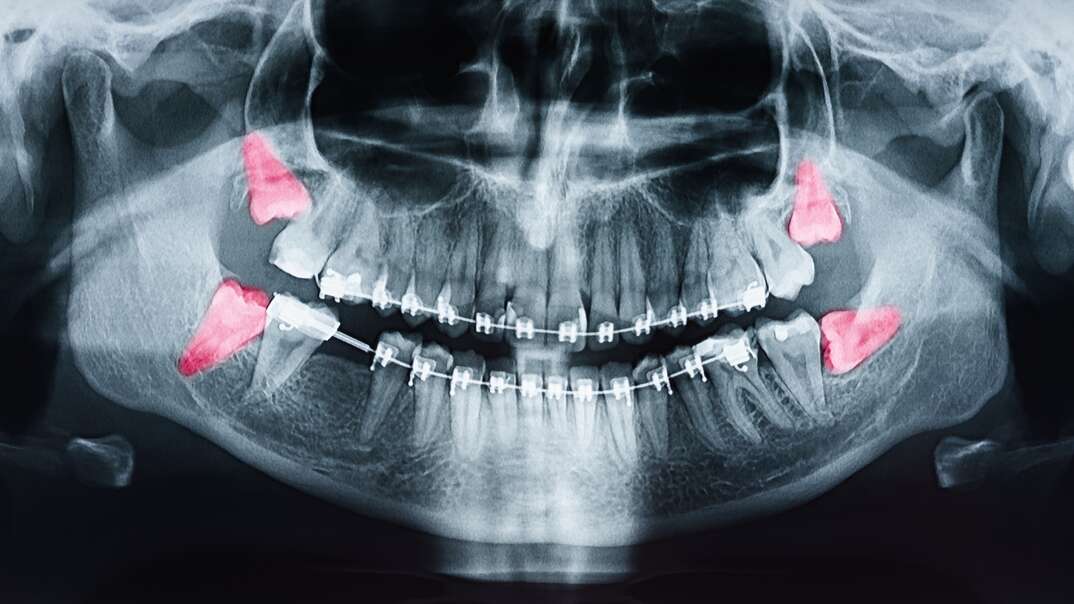- AppliancesElectriciansHVACLandscapingLocksmithPest ControlPlumbingRenovationRoofingT V RepairAll Home Improvement
- Car AccidentClass ActionCorporate LawCriminal DefenseDivorce LawEmployment LawFamily LawFinancial LawLegal AidMedical Injury LawyersMedical MalpracticeReal Estate LawWater Fire RestorationAll Legal
- InvestmentRetirementAll Finance
- Animal InsuranceAutoGeneral InsuranceHealth PolicyHome RentersAll Insurance
- DentalHealth SpecialistsAll Medical
- Animal CareVeterinaryAll Pets
- Auto GlassTowingAll Automotive
How Often Do You Need a Dental X-Ray?

Your teeth are like the tip of an iceberg with a lot going on beneath the surface — and sometimes, that includes decay or inflammation.
Dental X-rays help oral health professionals locate hidden problems without using invasive techniques, and their frequency can range from six months to a few years.
By studying X-rays, dentists can see internal details of your teeth and jaw that may not be visible to the naked eye. For example:
- They can determine how deep tooth decay goes and if it appears to reach the root.
- X-rays provide information on the jawbone and surrounding tissue, showing areas of bone loss or pockets of infection.
- Dentists and other oral care professionals can check on an existing situation before beginning procedures, such as implants or tooth removals.
- X-rays can show the position and existence of permanent teeth in young children.
How Often Do Dentists Recommend You Get an X-Ray?
Dental X-ray frequency can vary because use can range from routine exams to complex problems. Adult patients who visit their dentist for regular checkups may receive dental X-rays anywhere from every six months to 3 years, depending on their oral health and dental office policies. The American Dental Association and the Food and Drug Administration offer frequency guidelines for dental professionals.
If you’re preparing for a dental procedure, such as an extraction or implant, you may have an additional X-ray performed beforehand. Other reasons for nonroutine X-rays include unusual swellings and prior to receiving orthodontic appliances.
More Related Articles:
- How Often Should You Go to the Dentist?
- Do Dentists Offer Payment Plans?
- Everything You Need to Know About Emergency Dentists
- How Much Does a Dental Cleaning Cost?
- How Much Do Dentures Cost?
Dental patients undergoing a series of treatments may need to repeat X-rays more than usual. For example, if you have periodontal disease (often called gum disease), you may need frequent X-rays to monitor bone loss. Teens whose jaws and bites are constantly evolving may also require periodic X-rays to determine if braces are necessary.
While most dentists have policies regarding their use of dental X-rays, each patient is unique and should be involved in their oral care. If you’re wondering, "How often do I need dental X-rays?" talk to your dentist about your dental history and oral care plan.
How Often Is It Safe to Get Dental X-Rays?
The amount of radiation exposure from dental X-rays is minor compared to the radioactive particles we interact with daily, from earth minerals to sunlight and manufactured products. However, limiting unnecessary radiation is always a good idea. Therefore, talk to your dentist to find an X-ray schedule that meets your needs and helps detect and prevent problems while reducing excess exposure.
Types of Dental X-Rays
Depending on your oral health, you may have experienced one or more of the following dental pictures.
- Bitewing X-rays get their name from the way the radiograph is taken. The patient bites down on a small tab to keep the film in place. Bitewings help detect decay in and between teeth and slightly below the gum line.
- Panoramic dental X-rays show the complete mouth, including upper and lower teeth, in one image. You may need to place your front teeth on a small block to position the jaw and skull; however, nothing is placed inside your mouth.
Digital Dental X-Rays
Digital X-rays, while expensive, are becoming more common in dentistry. They work on the same concept as digital cameras, and the resulting images are rapidly available, requiring no chemical processing. In addition, digital X-rays use even less radiation than traditional X-ray machines.
Elocal Editorial Content is for educational and entertainment purposes only. The information provided on this site is not medical advice. Editorial Content is not intended to be used for diagnosis or treatment. We are not physicians or a substitute for advice from a physician. The opinions, beliefs and viewpoints expressed by the eLocal Editorial Team and other third-party content providers do not necessarily reflect the opinions, beliefs and viewpoints of eLocal or its affiliate companies. Use of the Blog is subject to the
Website Terms and Conditions.The eLocal Editorial Team operates independently of eLocal USA's marketing and sales decisions.



